So apparently, bumblebees have hobbies now?
I read this study where scientists gave them tiny wooden spheres, and the bees kept rolling them around like soccer balls ⚽
Not for any food reward or evolutionary purpose.
Just pure, unproductive play.
I’m not a bee person (though I do support their work), but that fact that they do this for fun hit me right in the feels.
You tellin’ me these lil bees out here really just bumblin around lookin for a good time? 🥹
It reminded me how often we humans dismiss play in our own lives.
Play is productive
We label it a distraction.
A delay.
A waste of time.
But what if play isn’t a break from the work?
What if it is the work?
I mean, it worked for the bees.
So lately, I’ve been trying to make more space for that kind of play—the kind with no guaranteed outcome. No goal, no pressure. Just curiosity.
Sometimes, it leads nowhere.
But other times it leads somewhere better than I could’ve planned.
Use play to fight perfectionism
One of the ways I practice that? I write bad ideas on purpose. I enjoy collecting them, too.
You can even add your own to the bad idea blob on my website if you want.
Some recent favorites from the blob:
Acrylic nails for dogs
Dentures for babies
Tinder but for fighting
Screaming into Pillows: A guided series
Why bad ideas are brilliant
I love bad ideas. They’re how I play with problems before they become solutions.
They’re not wrong.
They’re just waiting to be seen from the right angle.
We’re taught not to share them. We're expected to only have newsworthy, productive epiphanies. And if we share bad ideas, our brain tells us everyone will point and laugh:
"HAHA! Wow what a giant dumb dumb I'm never listening to that idiot ever again."
And your brain acts like you just got booed off stage.
But does that actually happen? Or is that just our brain protecting us from rejection?
Perfectionism tries to shield us from harm (real or imagined). So it makes sense that sharing half-baked thoughts feels risky. But here’s the thing…
Perfectionism isn’t protection. It’s a delay.
A polite one, but still a delay. And play (especially messy, low-stakes, who-cares play) is what gets us moving again.
In this book I’m reading Meditations for Mortals, there's a quote I keep coming back to:
“If you can’t come up with 10 ideas, come up with 20.”
Somehow, the pressure lessens as the number grows. Because now those first 10 don’t have to be good. You’ve got 10 more chances!
It’s like creative compost where the more scraps you throw in, the richer the soil for your next idea.
The other day I was folding laundry, thinking about those bees and wondering why their little wooden-ball game felt so important to me.
And then it clicked: play isn’t just a way to recharge, it’s how we access new ways of thinking.
Not when I was focused. Not when I was trying. Just… mid-sock match. That’s the power of play. It gives your brain room to stretch out.
This is why some people say writer’s block doesn’t exist. You don’t have a words problem. You have a perfectionism problem.
Better ideas come when you stop trying
In a hyper-focused, hyper-optimized world, distractions are painted as the enemy.
You didn’t reach your goal? Well it’s your fault for not being “focused enough.”
Meanwhile, science says otherwise. In Meditations for Mortals, the author writes:
“Fixity of attention isn’t our baseline. The natural state of mind is often for it to bounce gently around... a state sometimes known as ‘open awareness,’ which neuroscience research has shown is associated with incubating creativity.”
Translation? Wandering minds are creative minds. Think about it: monks train for years to develop single-pointed focus because it doesn’t come naturally.
Your brain bouncing around is not broken
It’s built this way for a reason.
That email you paused to answer, the idea you jotted down mid-project, or the moment you stopped working to greet your partner? That might end up mattering more than whatever was originally on your calendar.
Some of our best ideas don’t show up when we’re straining to focus. They sneak in the side entrance when we’re doing the dishes. Driving. Showering. Goofing off with friends.
That’s not a failure of focus. That’s open awareness doing its job.
Letting your mind wander isn’t wasting time. It’s creative compost.
And honestly, if even worker bees make time to roll balls for no reason, maybe we can stop punishing ourselves for chasing what appears pointless.
Play isn’t a reward.
It’s how we process complexity.
It’s how we think.
It’s how bad ideas get good.
How we experiment.
How we connect dots.
How we find what we didn’t know we were looking for.
It’s also how ideas spread.
Play is pollination. A curious thought lands somewhere unexpected and suddenly, something blooms.
Whether we’re making things, marketing things, or just trying to connect with people—play is how we carry the good stuff from one place to another. Oo! Which reminds me…
How Amy Poehler makes room for play
I’ve been obsessed with Amy Poehler’s new podcast Good Hang because it’s sneakily brilliant in this exact way.
Instead of doing a typical celebrity interview, she starts by calling the guest’s friends and asking:
“What would you want to ask them?”
Then she brings those questions into the conversation.
Bringing in someone who knows the guest invites that sense of play. It invites context, surprise, humanity and warmth. The conversation becomes less “expert teaches novice” and more like a group of friends passing the mic.
A few of my favorite episodes have been with Tina Fey, Jack Black, and Paul Rudd but honestly, every single one has been a hit.
It feels like someone made a podcast specifically for my ears. I like starting my day by listening or watching while I eat my breakfast because it’s so true to its name, genuinely a really Good Hang.
The format got me thinking about this idea of...
The “Peanut Gallery” effect
It’s when insight bubbles up from the people around us, not just the person in the spotlight.
We spend so much time trying to be the expert, the planner, the driver.
But what if we let others help us find the way?
What if we invited play, not just with ideas, but with people?
We don’t need a mic or a guest list. We just need a friend who knows how to ask a better question than we’re asking ourselves.
Next time you're workshopping an idea, ask someone:
"What would you ask about this?"
You might hear the exact question you didn’t know you needed.
Here’s what I’m taking away from Amy Poehler, the bad ideas, and the bees:
💡 Surprise comes from openness: in your attention and in your people.
💡 Quantity beats perfection: more bad ideas is better than no ideas.
💡 Play is productive (even when it doesn’t look like it).
Try this if you're feeling stuck
That feeling might be your cue to go roll a metaphorical wooden ball. Do things like:
Write 10 "bad" ideas without editing. Delete them or save to laugh at later. Even if it feels silly.
Notice where your best ideas actually show up (the car? the shower?) Start a note to track it.
Ask someone else what they’d ask about a problem you’re working on. Let the question shape your next step.
Whatever we do, we just can’t work our lives away waiting for play to feel “earned.”
We’re allowed to roll the wooden ball first.
So when I feel the grip of perfectionism or the pull of productivity trying to edge out joy, I need to remind myself:
I will make space for joy on purpose.
Play is not a reward, it’s a requirement.
I can laugh loudly, dance often, and protect the parts of me that still believe in magic.
Alright, I gotta go but I hope you have a play-filled joyful week 💖
If the bees can do it, you can too.
Talk to ya later my friend, byeee!!
Other Cool Stuff
How to turn bad ideas into great work
I joined the Create for No Reason podcast to talk about how bad ideas can spark great work, scripted vs. unscripted content, and why live video feels more human.
👀 Watch on YouTube
📱 Listen on Apple
🎧 Listen on Spotify
More on creative play…
💖 The Case for Play
🎭 The Risk of Playing (And Why It’s Worth It)
🐝 Bee Play Research


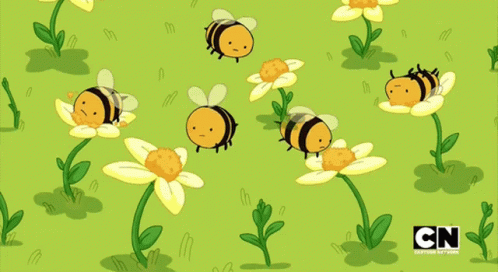


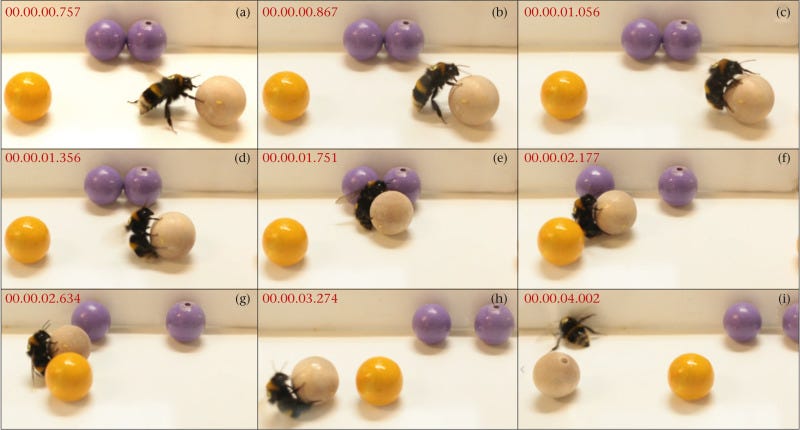


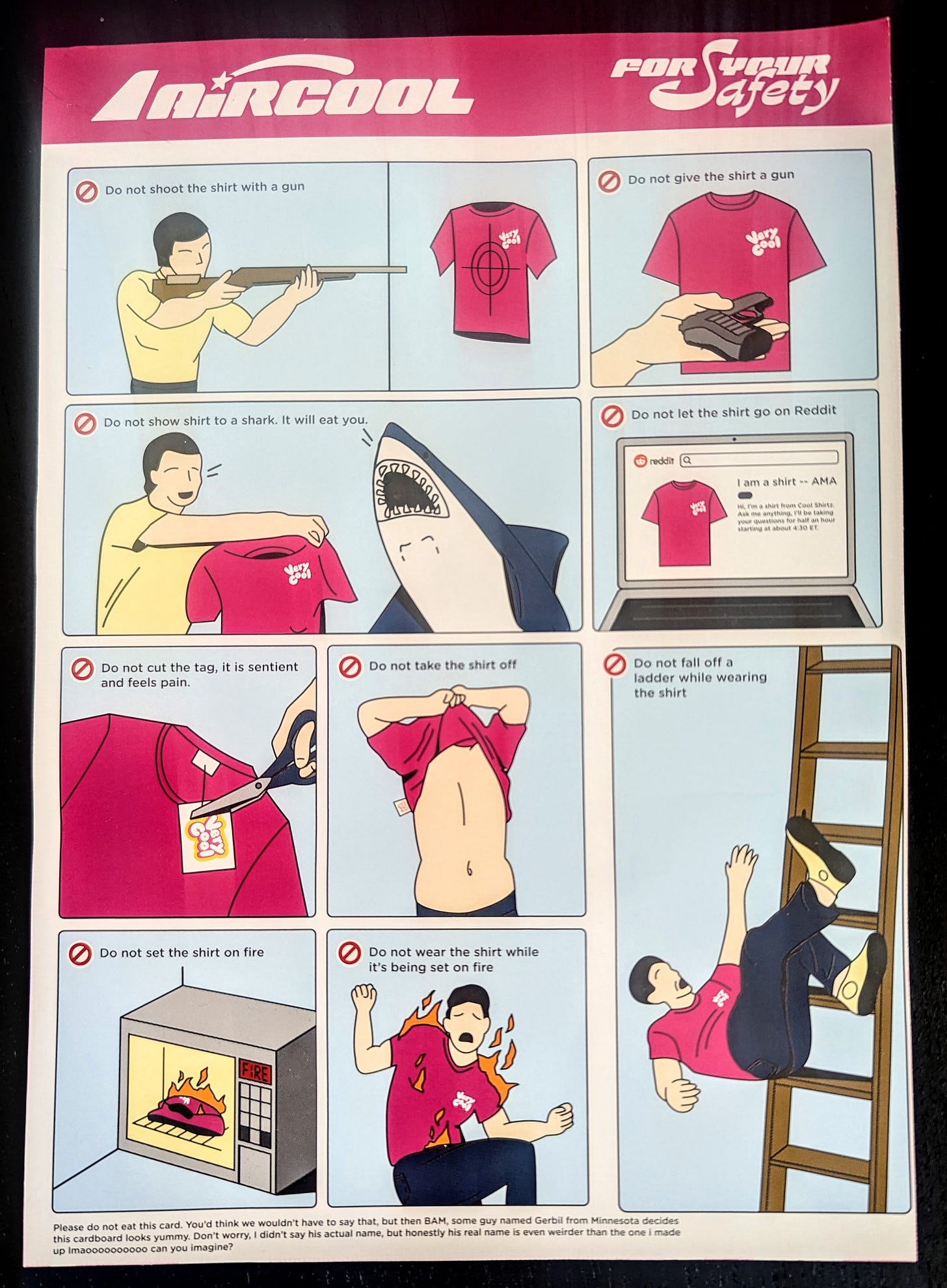





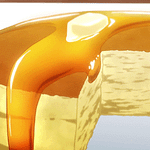
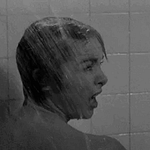

Share this post